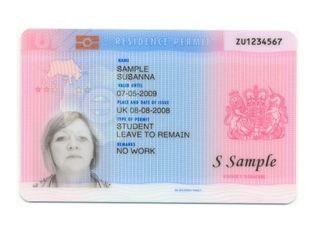UK biometric ID cards "can't be read"
All part of the cunning plan says Home Office

The first batch of biometric ID cards was introduced into the UK in November to foreign residents residing in the country, but three months into the scheme and there are still currently no readers that can analyse the biometric data within the cards.
Technology website Silicon.com were first to uncover the oversight, which has prompted Shadow Home Secretary Chris Grayling to call the ID card project "absolutely farcical".
Using existing databases
The data contained within a biometric ID card includes fingerprint readings. Without the proper card readers, this data is rendered useless, meaning police and airport staff have had to resort to taking down individual's fingerprints and comparing them against an existing database.
TechRadar contacted the Home Office about the news, and they delivered this statement: "Currently we're able to verify biometric features at all ports. Immigration Officers are currently able to verify identity directly against the UK Border Agency's existing databases.
"ID cards will help protect against identity fraud, illegal working and immigration, crime and terrorism, and those trying to abuse positions of trust and make it easier for people to prove they are who they say they are."
Part of an incremental rollout
Get daily insight, inspiration and deals in your inbox
Get the hottest deals available in your inbox plus news, reviews, opinion, analysis and more from the TechRadar team.
A spokesperson for the Home Office also told us that this is all part of an "incremental rollout" of the ID scheme, which has already been detailed in the Identity Cards Act. This act is still in its consultation process, which will end Friday 13 February.
Even if the current lack of card readers is part of the government's ID plan, it has sparked off a war of words with the Conservatives, with Gayling again commentating, "What is the point of spending billions of pounds on cards that can't be read in the UK?"
Marc Chacksfield is the Editor In Chief, Shortlist.com at DC Thomson. He started out life as a movie writer for numerous (now defunct) magazines and soon found himself online - editing a gaggle of gadget sites, including TechRadar, Digital Camera World and Tom's Guide UK. At Shortlist you'll find him mostly writing about movies and tech, so no change there then.

